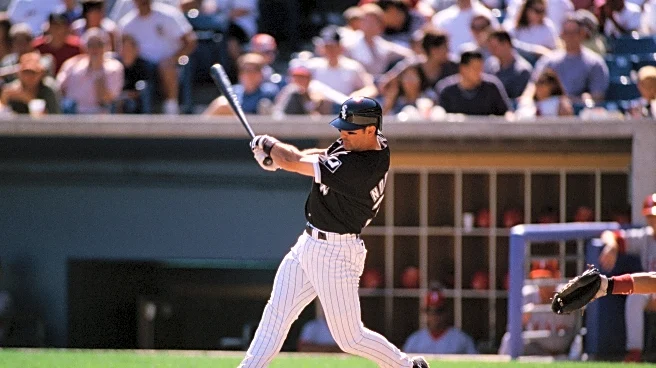1900
Yes, it’s a pre-major league White Sox item, featuring a non-White Sox player. But this one is too funny.
The White Sox lost a doubleheader to the Milwaukee Brewers , with Rube Waddell tossing two
complete games, 2-1 and 1-0.
White Sox player-manager Dick Madden suggested before the games that the two teams agree to play just a five-inning nightcap, what with no lights back in those days. Milwaukee manager Connie Mack agreed, knowing that he had ace Rube Waddell potentially available to pitch both games!
While that is a rare feat, pitching every inning of a doubleheader was not unheard of in the dead-ball era. However, Waddell’s complete game win in the opener ran 17 innings! And under those circumstances, to persuade Waddell to take the mound for the second game of the doubleheader Mack had to promise the lefty a few days off for a fishing trip.
Waddell threw a one-hitter in the five-inning nightcap win.
1930
When the Chicago Cubs bought the Single-A Southern Association’s Atlanta Crackers, they lost out on the best player on the team.
In an astoundingly-good, oft-overlooked, sort-of Crosstown trade, the White Sox sent $20,000 along with outfielder Doug Taitt to the Cubs in return for minor league shortstop Luke Appling. The deal was engineered by the front office’s Milt Stock, who was future Sox manager Eddie Stanky’s father-in-law.
Appling would go on to have a Hall of Fame career with the White Sox, with batting titles in 1936 and 1943. That 1936 season saw Appling drive in 128 runs. Over his 20-year career — all with the White Sox — Appling collected 2,749 hits, and by WAR he is the best hitter in team history.
1953
White Sox star lefthander Billy Pierce’s run of 39 2⁄3 consecutive shutout innings ended at home against the Browns when former Sox outfielder and Pierce teammate Don Lenhardt hit an RBI double in the sixth inning of a game the Sox eventually lost, 4-3, in 10 innings.
Pierce’s streak started with a complete game shutout in Washington on August 3. He threw three complete game shutouts in the streak, along with two relief appearances covering almost eight innings, adding up to four wins and a save. Even including the four runs (two earned) surrendered in this Browns loss, during the streak Pierce gave up just 27 hits, and had 35 strikeouts to 10 walks, for a 0.40 ERA.
That year, Billy went 18-12 with a 2.72 ERA.
1970
The White Sox set the franchise record for most runs ever scored in the ninth inning of a game, when they got 11 runs in Boston. Earlier in the year, the White Sox scored 22 runs at Fenway Park, and on this day the 11 runs on 10 hits turned a sure loss into a 13-5 win for pitcher Wilbur Wood, on in relief of Tommy John.
The 11 runs were scored without the benefit of a single home run, as 16 men batted in the inning. Wood helped himself during the barrage, pushing a single to right field off of Sparky Lyle and driving in two, extending the lead to 8-5 at the time. It was Wood’s second and final hit of 1970; his .111 season average was a career-high at the time.
Bill Melton and Luis Aparicio both had two hits in the inning. In Aparicio’s case, he was a pinch-hitter, becoming the first White Sox pinch-hitter ever to have two hits in one inning: A two-RBI double to start the assault and provide the eventual winning runs, and a single to provide a third RBI and final run of the game for the White Sox. Aparicio’s double also was the only extra-base hit of the chain, to go along with nine singles.
1983
The White Sox had a crazy, and ultimately successful, doubleheader, sweeping the Texas Rangers in Arlington.
In the opener, Rudy Law singled in the eighth to tie the game, 1-1, then stole his 56th base to tie the club record shared by Wally Moses and Luis Aparicio. Then in the 10th, Law again singled and swiped second, setting a new White Sox team record. He ended up scoring the lead run and the White Sox prevailed, 3-2.
In the nightcap, things got weird. In the seventh inning and the sacks packed with one out against future White Sox knuckleballer Charlie Hough, Jerry Hairston cracked a sacrifice fly to center field that scored two runners. Presumably the ball was deep enough for Julio Cruz to try to be bold — scoring from second. The way Cruz spoke of the play postgame (“I’ve dreamed of doing that all my life”) indicates this two-RBI SF was a product of derring-do and not outfield mishap. The White Sox prevailed, 6-1.
What’s funny is that while scoring from second base on a sacrifice fly is a rare play, this was the second occurrence in the 1983 season for the White Sox, and even more odd, plodding Marc Hill was the runner who achieved it, back on May 15.
Richard Dotson won his then-career high 13th game in the opener (he’d finish 1983 with 22), Jerry Koosman his 200th career win in the nightcap. The White Sox, beginning an immoral run to the end of the regular season, extended their AL West lead to eight games.
1996
Twenty-six years to the day of the first-ever White Sox pinch-hitter with two hits in the same inning (Luis Aparicio, 1970), Greg Norton repeated the feat — in just his second MLB game!
Norton pinch-hit for catcher Ron Karkovice in the eighth inning, with the White Sox trailing Detroit, 7-5. Ray Durham had led off with a single, and Norton’s liner to right pushed Durham to third, with Norton taking second on a Rubén Sierra error. Norton came around to score the tying run as Ozzie Guillén stepped to the plate and took a first-pitch offering deep to right for a three-run homer. After the team batted around and plated seven runs in the process, Durham and Norton both singled once more, this time with two outs (Guillén flew out to end the long frame).
The White Sox prevailed, 12-7, moving to 69-57 on the season.











